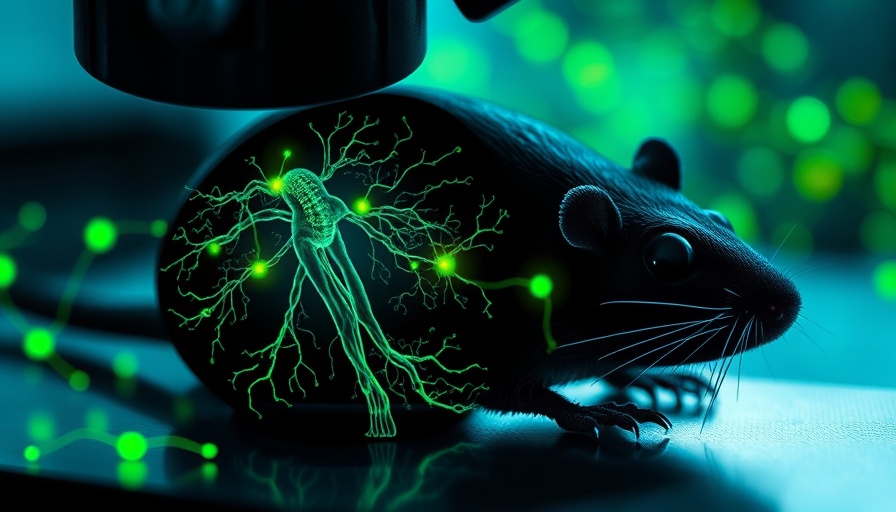
Exploring the Link Between Diet and Brain Health
In an age where the choices we make in our diets are explored extensively, recent research reveals that fatty diets do more than affect our waistlines; they can significantly alter brain cell functionality. Specifically, astrocytes—star-shaped glial cells in the brain—are affected by rich dietary choices. A study conducted by researchers at the CNRS and Université Paris Cité published in Nature Communications demonstrates that these astrocytes change shape and become reactive in response to a high-fat diet, indicating inflammation within the brain.
How Astrocytes Affect Cognitive Function in Obesity
Astrocytes play a pivotal role in the health of our central nervous system. Unlike more commonly studied neurons, which generate electrical signals, astrocytes regulate key processes in the brain's microenvironment. They assist in neurotransmitter recycling, maintain ion balance, and even support blood-brain barrier integrity. The study discovered that modifying astrocyte activity could potentially reverse cognitive impairments seen in obesity, such as task relearning abilities. This groundbreaking insight suggests that addressing astrocytic dysfunction may lead to innovative treatments for individuals struggling with obesity and its neurocognitive consequences.
The Science Behind Astrocyte Manipulation
The researchers employed innovative chemogenetic techniques to explore how astrocytes could be manipulated. By using a specially designed virus, they were able to control calcium flow within the astrocytes, effectively acting as a switch. When activated, these astrocytes were found to influence neuronal activity positively, showcasing the interconnectedness of brain cellular mechanisms.
The Role of Nutrition in Brain and Body Health
Understanding the impact of diet on brain health is crucial for overall wellness. Poor dietary choices can lead to systemic inflammation, which affects not just our physical health, but cognitive performance and emotional well-being as well. Emphasizing naturally healthy foods like fruits, vegetables, whole grains, and lean proteins can support both brain function and systemic health by reducing inflammation and promoting healthy neural activity.
Community Health Implications
In cities like San Antonio, the integration of health and wellness strategies has become vital. Local health and wellness centers are increasingly focusing on natural medicine, including nutritional supplements and lifestyle medicine. Residents are encouraged to explore community health events that advocate a balanced approach to health, merging nutrient-rich eating habits with mental well-being. This holistic approach aligns with the rising interest in preventive health measures, enabling communities to foster environments that prioritize optimal health and wellness.
Future Directions in Research
This new understanding of astrocytes opens up exciting avenues for future investigations. By examining how specific dietary patterns affect astrocyte behavior, researchers may unlock further mysteries tied to cognitive health. Observing these patterns could lead to more profound insights related to diseases associated with obesity, such as Alzheimer's and other forms of dementia.
Making Informed Dietary Choices
With the evidence mounting about the effects of our diets on brain health, making informed choices about food becomes paramount. Individuals may consider moderating their intake of processed foods while focusing on integrating natural health products and supplements that encourage vitality. Seeking guidance from professionals in the field of naturopathic medicine or attending community health workshops can enhance one’s understanding of these connections.
In conclusion, the link between fatty diets and brain health, emblematic of the intricate relationship between our lifestyle choices and neurological function, calls for further investigation and public awareness. As we learn more about the ways in which dietary patterns influence our cognitive well-being, we can better support initiatives aimed at fostering health and wellness in our communities.
 Add Element
Add Element  Add Row
Add Row 



 Add Row
Add Row  Add
Add 


Write A Comment